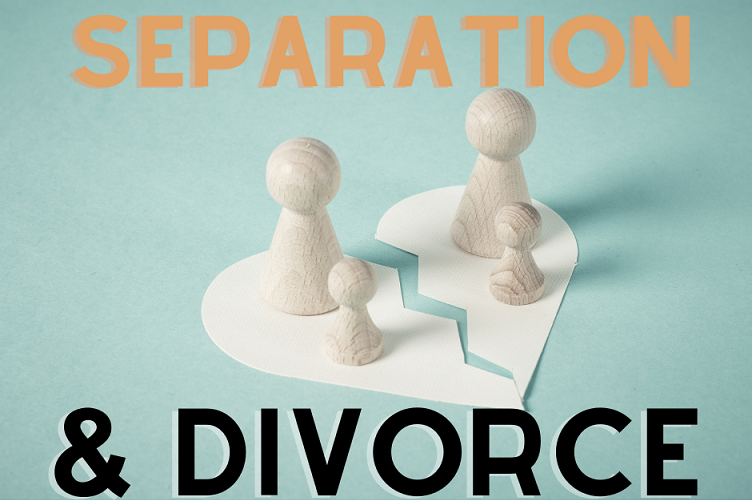The breakdown of a marriage or de facto relationship can be a difficult and emotional time for everyone involved. In Australia, there are two legal processes: separation and divorce. These terms are often used interchangeably, but they actually have distinct legal meanings.
Separation in Australia
Separation happens when you and your partner stop living together as a couple. There is no formal legal process required for separation to occur – it can be a mutual decision between the couple or one of you may decide to leave the home.
Separation can also happen even if you or your partner do not agree with the separation. However, it needs to be clear that one of you thinks that your relationship is over.
It is important to note that separation is not the same as divorce. Separation does not formally or legally end your marriage or de facto relationship. However, separation can impact other areas of law, such as property settlement and parenting arrangements.
Divorce in Australia
Divorce is the legal process of formally ending a marriage. In Australia, divorce is governed by the Family Law Act 1975 (Cth). To apply for a divorce, you must:
- be able to prove that the marriage has broken down;
- be able to prove that you have been separated from your spouse for at least 12 months.
The Court does not consider whose fault it was that the marriage broke down.
The Court also requires that you either:
- be an Australian citizen,
- live in Australia and think of Australia as your permanent home, or
- usually live in Australia and have done so for at least 12 months before the divorce application.
If the Court grants a divorce, you are no longer legally married and are free to remarry. However, it is important to note that a divorce does not automatically deal with other issues, such as property settlement or parenting arrangements. These issues must be dealt with separately, either by agreement between the parties or through Court proceedings.
It is very important to understand that any claim you have to joint assets of the relationship, referred to as a property settlement, must be formally divided within 12 months of the date of the divorce order.
Limitation period
If you do not resolve the property settlement and need to go to court, you only have 12 months from the date of the divorce to apply for a division of property. Otherwise, you will have to get special permission from the court or your claim to the assets of the relationship may be lost. Therefore, if you are married, you should not wait till you are divorced to finalise a property settlement.
For de facto relationships, the time limit to resolve joint property issues is 2 years from the date of the separation. This means that the countdown to the 2 year time limit begins as soon as you are separated.
We highly recommend that you speak to a lawyer and get family law legal advice as soon as you have separated from your partner.
Key Differences between Separation and Divorce
The key differences between separation and divorce in Australia are as follows:
- Separation is the physical separation of the parties, while divorce is the legal process of ending a marriage.
- Separation does not formally end the marriage or de facto relationship, while divorce does.
- If you are married, separation does not give either party the right to remarry, until a divorce has been granted.
- Separation can impact other areas of law, such as property settlement and parenting arrangements, while divorce does not automatically deal with these issues.
Conclusion:
The terms “separation” and “divorce” are often used interchangeably, but they have distinct legal meanings in Australian law. Separation is the physical separation of the parties and divorce is the legal process of ending a marriage.
It is important to note that separation can still have legal implications, such as property settlement and parenting arrangements. If you are thinking about separating or getting a divorce, it is a good idea to speak to a lawyer to understand your rights and responsibilities.
For more information visit our website:
https://www.barwoncommunitylegal.org.au/my-family/separation-divorce/
Mahima Bhandari is a Community Lawyer who is part of the Family Law practice at the Barwon Community Legal Service. Mahima also appears as Duty Lawyer at the Geelong and Warrnambool Circuits of the Federal Circuit and Family Court of Australia.


